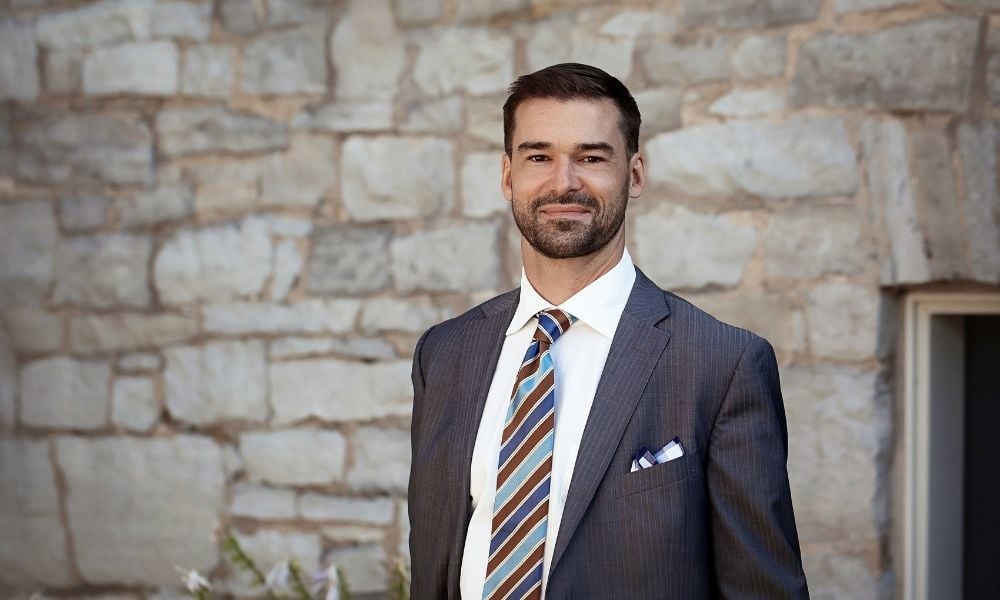Bergeron Clifford’s Warren WhiteKnight delves into ‘tricky waters’ of parents’ legal obligation

Sponsored content
My sister ratted me out to my parents when I was 10 or so. The kid across the street and I had figured out a way to climb into the loft space of a neighbour’s garage by chimpanzee-ing our way across the attic rafters that joined the garages in a multi-unit building. I was exhilarated by the fact that only my buddy and I — and possibly Indiana Jones — could have made such a discovery, but much to my chagrin my sister was terrified I would fall and took it upon herself to inform my folks. Little did they know that we’d been doing this for months during the summer break when I wasn’t allowed in the house during daylight hours, and my folks had no idea where I was in the neighbourhood 90% of the time.
When my well-meaning and tearful sister informed my parents of my antics, they were not impressed for a variety of reasons that didn’t make any sense to me at 10 years old. Fast forward to the present and, as a father of four children who masquerades every day as a plaintiff’s personal injury lawyer, suffice to say that my parents’ concerns do hit home a bit more these days.
If I had fallen, or been caught from below by the automatic door chain mechanism when the garage opened and we spied on the neighbour from 10 feet overhead, or any other ill outcome had come home to roost, would my parents have been to blame if a lawsuit had ensued?
Not morally to blame. But legally? Likely so.
So what should we all do? It’s 2021, the world is in the second year of a pandemic and we want kids to be kids. Unfortunately, these negligent supervision cases often arise in the case of tragedies — a kid who borrows a motorboat without explicit permission or is riding their bike through a busy intersection to the corner store. Where is the boundary between permissible freedom and negligent lack of supervision?
In Ontario, the case law has established that a parent will not be found liable for the acts of their child based solely on the basis of the parent and child relationship. A parent can however be held liable for a failure to supervise or instruct their child where there is a causal connection with damage caused by or to the child. Succinctly, if the failure to supervise is unreasonable in the circumstances and meets the normal test of negligence then a parent can be liable. (See example of the seminal case Floyd et al. v. Bowers et al., 1979, where a 13-year-old son shot the infant plaintiff, then 12, in the eye with a pellet from an air rifle, destroying sight in that eye).
It’s important to note that age is a relevant factor. While there is no bright line it is intuitive that the younger the child is the more the law will expect a parent to supervise, and there is a perfect nexus of propensity for mischievousness as a child becomes more independent and capable yet is still too young to have much insight (coincidentally around the ages of 8-12). It is also intuitive that as a child approaches the age of majority the child will be expected to conform with adult societal norms (disclaimer: Indiana Jones is not a normal adult), and thus only in much clearer and extreme circumstances will a parent be liable for the conduct of a teenage child.
A related but separate note is that the law is ever-evolving to catch up with societal trends, and the legal principles for parental responsibility have recently been tested in cases involving online activities such as harassment and bullying (See Unifund Assurance Company v. DE, 2015 ONCA 423 and companion case CS v TD Home and Auto Insurance Company, 2015 ONCA 424). It’s 2021 — the fact your kid is in the basement and isn’t chimpanzee-ing in the neighbour’s attic no longer means you know what they are up to.
In plain English, what this all means is that if a parent knows or ought to know of a desirable but dangerous activity that their kid is undertaking, they have a legal obligation to supervise and instruct. These are tricky waters to navigate, but the stakes are ever so high.
Warren WhiteKnight is a partner with Bergeron Clifford Injury Lawyers in Kingston, Ottawa, Perth and Carleton Place. He is a Queen’s Law graduate and the past president of the Frontenac Law Association.










